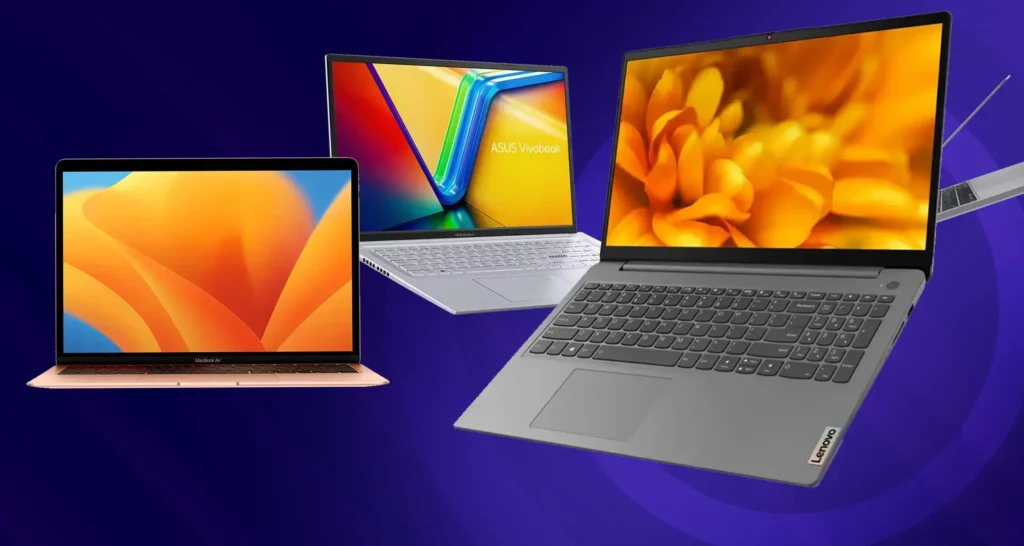
Laptops have become essential tools in today’s digital world, whether for education, business, creative work, or entertainment. Portable and powerful, laptops combine the functionality of a desktop with the convenience of mobility.
Why Choose a Laptop?
Laptops are ideal for people who need computing on the go. Whether you’re a student attending classes, a professional working remotely, or a gamer looking for high-performance hardware, there’s a laptop designed to suit your needs.
Key Features to Consider
- Processor (CPU): Determines speed and performance.
- RAM: Affects multitasking capabilities.
- Storage: SSDs are faster than traditional HDDs.
- Display: Ranges from HD to 4K; size also matters (13”–17”).
- Battery Life: Crucial for portability.
- Graphics Card (GPU): Important for gaming, editing, and design.
- Operating System (OS): Windows, macOS, or Linux based on preference.
Laptop Comparison Table
| Model | Processor | RAM | Storage | Display | Battery Life | Best For |
| Dell XPS 13 | Intel Core i7 | 16 GB | 512 GB SSD | 13.4” FHD+ | Up to 12 hours | Business, Students |
| Apple MacBook Air M2 | Apple M2 Chip | 8 GB | 256 GB SSD | 13.6” Retina | Up to 18 hours | General Use, Creative |
| Lenovo ThinkPad X1 | Intel Core i7 | 16 GB | 1 TB SSD | 14” WQHD | Up to 15 hours | Business Professionals |
| HP Spectre x360 | Intel Core i5 | 8 GB | 512 GB SSD | 13.5” OLED | Up to 13 hours | Students, Everyday Use |
| ASUS ROG Strix G15 | AMD Ryzen 7 | 16 GB | 1 TB SSD | 15.6” FHD 144Hz | Up to 8 hours | Gaming, Performance |
Conclusion
Choosing the right laptop depends on your specific needs. For portability and productivity, models like the Dell XPS 13 or MacBook Air are great. Gamers may prefer performance laptops like the ASUS ROG series, while professionals often opt for business-class models like Lenovo ThinkPads.





